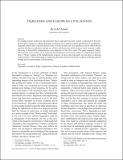Files in this item
Taqizadeh and European civilisation
Item metadata
| dc.contributor.author | Ansari, Ali Massoud | |
| dc.date.accessioned | 2016-06-08T10:30:06Z | |
| dc.date.available | 2016-06-08T10:30:06Z | |
| dc.date.issued | 2017-07-13 | |
| dc.identifier | 241630188 | |
| dc.identifier | bf040917-b2b6-4c3c-8c89-bfb57d465477 | |
| dc.identifier | 85022007125 | |
| dc.identifier | 000378823700005 | |
| dc.identifier.citation | Ansari , A M 2017 , ' Taqizadeh and European civilisation ' , Iran: Journal of British Institute of Persian Studies , vol. 54 , no. 1 , pp. 47-58 . https://doi.org/10.1080/05786967.2016.11882300 | en |
| dc.identifier.issn | 0578-6967 | |
| dc.identifier.uri | https://hdl.handle.net/10023/8947 | |
| dc.description.abstract | The leading Iranian intellectual and nationalist Hasan Taqizadeh has been roundly condemned by posterity for his call to Iranians to embrace European civilisation in its entirety without qualification or compromise. Taqizadeh himself later conceded that the form of words he had used were injudicious, but he added that his intention had been to galvanise Iranians out of their self-destructive political stupor and it remains a reality that many of Taqizadeh's contemporaries were supportive of his call to arms. This paper reassesses Taqizadeh's position in the context of his historical and intellectual environment, which it is argued drew heavily from a “Whig” reading of the Enlightenment progress. It shows that Taqizadeh was not alone in drawing on this narrative while maintaining an important distinction between the positive aspects of British political thought and the shortcomings of British policy. | |
| dc.format.extent | 191169 | |
| dc.language.iso | eng | |
| dc.relation.ispartof | Iran: Journal of British Institute of Persian Studies | en |
| dc.subject | Taqizadeh | en |
| dc.subject | Civilisation | en |
| dc.subject | Whig | en |
| dc.subject | Enlightenment | en |
| dc.subject | Britain | en |
| dc.subject | al-Afghani | en |
| dc.subject | Malkom Khan | en |
| dc.subject | JZ International relations | en |
| dc.subject | T-NDAS | en |
| dc.subject | BDC | en |
| dc.subject.lcc | JZ | en |
| dc.title | Taqizadeh and European civilisation | en |
| dc.type | Journal article | en |
| dc.contributor.institution | University of St Andrews. School of History | en |
| dc.contributor.institution | University of St Andrews. Institute of Legal and Constitutional Research | en |
| dc.contributor.institution | University of St Andrews. Centre for Global Law and Governance | en |
| dc.identifier.doi | https://doi.org/10.1080/05786967.2016.11882300 | |
| dc.description.status | Peer reviewed | en |
This item appears in the following Collection(s)
Items in the St Andrews Research Repository are protected by copyright, with all rights reserved, unless otherwise indicated.

